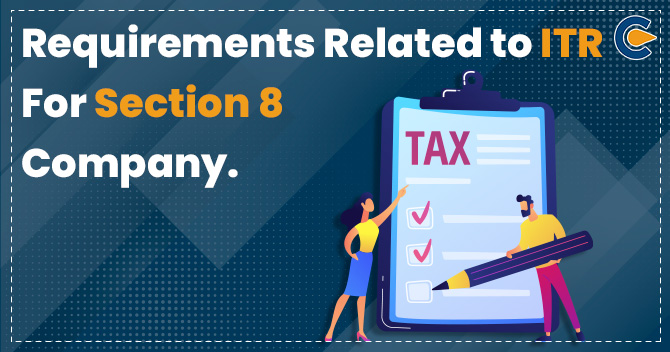The primary control over trust property passes from the ends of settlors to beneficiaries, which also means moving from owners to owners. The fate of the determined owners is silent and passive, just like the Trust property and so other funds. This article answers the legal analysis of the trust property by showing how the ownership of the Trust upturns the relation between owner and owned person.
What do you mean by Trust Property?
In standard terms, Trust property determines the assets used as a means to play a fiduciary relationship in between a trustor and trustee towards a designated beneficiary assigned as per the Deed. Moreover, Trust property should include any asset which may be in kind such as cash, securities, real estate lands, or any insurance term policies. Trust property is also termed as assets of the Trust or the Corpus of the Trust.
In general, the trust property gets applied to a real estate planning strategy that is used to promote the transfer of assets as well as accountabilities to reduce tax. There are some trusts which can also protect assets utilizing the event such as bankruptcy or trial. In this scenario, the trustee required to control and manages the trust property following the trustor’s wishes and the beneficiary’s interests.
When the property gets assigned to a trust, then the Trust will itself becomes the rightful owner of the assets. In an irrevocable trust, the assets can no longer be regulated or claimed back by the trustor or the previous owner.
Consequences of holding Income from Business Property under ‘Charitable Trust’ over the income Shown in the Account under Section 11(4)
- When the property gets held under Trust and involves in other business undertakings, the claims get made afterward against those properties. Thereby, any income of such undertaking shall not be included in the total income of the Trust. It may empower the Assessing Officer to determine the income of such undertaking more than the income as noted in the accounts of the undertaking. Therefore as a result, such incomes will be considered to be applied to the purposes other than charitable/ religious objects.
- It might view that any business should not get involved concerning any income of a trust or an institution unless the business is subsidiary to the objectives. Concerning the above said, separate books of accounts should be maintained by Trust or organization in respect of such accomplishments.
- In situations where the property is secured under Trust partially for religious objectives and partly for other objectives, and where the individual share of the beneficiaries gets noted in the income applicable to purposes other than charitable objects is not similar- in those circumstances, the tax chargeable shall be the total of:-
- Situation 1: the tax part of the income applies to charitable or religious purposes gets as reduced by the amount to be exempted under section 11 as if the total revenue was the total income of the Trust; and,
- Situation 2: Taxes on other parts of income which connects to purposes other than charitable or religious and affects the shares of beneficiaries are visibly unknown; then, the charges will be at the maximum marginal rate of tax.
What is the Validity of property transfers under Trust?
- Market Value:
Following the case of Venugopala Naidu & Ors v Venkatarayulu Naidu Charities &ors, it says that the trustees and courts are the only ones who should consider the market value of any trust property to get sold.
- Largely Protected
Similarly, the court also reaffirmed its judgment in Chenchu Ram Reddy &anor v Government of Andhra Pradesh &Ors. It held that any property under any charitable domains or Trust must be duly protected because large sections of the community have lucrative interests in them.
- Private Sales
Furthermore, any sale by private intimations and negotiations will not be permitted. However, negotiations that are not noticeable to the public eye should not be permitted unless there are exceptional grounds or approvals are given to justify them.
- Public Auction
The Supreme Court believed in its opinion in the case of Committee of Management of Pachaiyappa’s Trust v Official Trustee of Madras & another that any conduct concerning the lease of a trust property will hold on the order of a high court judge and should be done by public auction exclusively.
Public auction is how persons can make their offers. Trustees and courts are duty-bound to get the maximum benefit of a transaction for the Trust. Public auction after sufficient publicity ensures participation of those who are engaged and anxious to compete, and secures the best price.
- Just and Reasonable
Concerning the above-cited case, there was a transparent deliberation that whether the terms of a disposal of charitable or religious property are just and reasonable. The interest of the Trust will only be settled down in a comparative assessment for competing offers.
What are the Pros to Put the Property in a Trust/Charitable Institution?
There are certain safeguards you should understand before appreciating your property transfers in a trust due to the reasons stated below:-
- Escape from Probate Process
It is a generally accepted view that most of us are not aware of the fact that if you leave the property in a will, your family will have to go through the probate process. They will lose the legal right to claim the property. It is a court-supervised process of collecting a person’s assets, giving off all the bills and eligible taxes, and designating the left out property to the beneficiaries after the death of the person.
In cases where the properties are in different states, your family will need to find attorneys in each state to deal with the different probate laws. It is must costlier process. Therefore, it is better to outline who will receive your property, and there’s never a probate process your family will go through.
- No Probate/Attorney Fees
It is very costly of hiring different attorneys and the time expense of moving back and forth for specific court dates. Even if you hire an accountant and leave your property in a will, your receivers need to go into probate and have to give probate costs, which could cost a total of up to 3% of your assets worth value. It is not the same with the Trust.
- Less Liability
A trust does not die; therefore, it is known to be perpetual succession. Consequently, it is not liable for estate duty, transfer duty, executor’s or conveyance’s fees, or capital gains tax (CGT)[1]. These might otherwise happen on the death of a property holder as per law.
- Protection
When a Property gets registered in a trust, it is protected from creditors because it does not form parts of your individual and personal estate legislations.
- Transfers Way out
If your Trust Property gets registered therein, it will not be affected by the death of the owner. If your legitimate or family members or heirs are beneficiaries of the Trust, it should not be required to transfer the property into the name of the heirs or members of the family.
- Mutual Expenses
The income received from the Trust’s Property is for the Trust, and investments or any expenses such as repairs, maintenance, water, and rates bills are also in the hands of the Trust’s account.
- Less Duty Exposure
If you have your property registered in a trust rather than in your name, it means that the value of your estate has relatively got reduced, which automatically lessens your estate duty exposure.
- Tax on Beneficiaries
Moreover, it is evident by concerned laws that a trust is taxed at the top marginal rate of45% as per the 2019 Budget. Moreover, trustees have the authorization to disseminate rental profits categorically to beneficiaries to minimize the status of tax. After all, the tax will then be returned by the beneficiaries at the marginal rate.
Read our article:Who is Settlor, Trustee, and Beneficiary?
What are the Cons to put the property in a Trust/Charitable Institution?
- More Involved Procedure
Because of extensive paperwork, you and your attorney will need to apply to the creation of a trust, which can take more time comparing a making standard will.
- Loose Control
If you leave assets in the name of the Trust, you’ll need to retitle as per requirement. Failure to this critical step might not go to the rightful inheritor after you pass. Your beneficiaries will have to comply with the choice of a probate that court selects. Moreover, you should always remember that you may lose control of your properties after you transfer ownership. It will purely depend on the type of Trust you choose to create.
- Insurance Issues
Due to the above-stated issue, this detail might create problems with your homeowner’s insurance and title insurance, as these particular may go no longer in your name with not policy returns. You have to ask your insurance company how your Trust will replace your policy or whether your title insurance will still comprise you for liens, Easements, premium rates, etc.
- Cost
This particular setup and administration involve huge costs initially. Furthermore, several Problems may occur if the Trust does not work properly after getting established or managed. On the whole, the Trust will be a separate taxpayer, and means of cost will be following different tax returns.
- Interest Rate
In cases where you lend money to the Trust, you will have to charge interest at standards of Indian rates.
- Loan Queries
If you need a home loan in any future time, then the banks are unlikely to grant a 100% bond to a trust. Even if a bank lends to a trust, they will demand you for signed surety or cash security of any kind. Consequently, with the time if the person who signed surety dies, the banks could submit a claim and automatically allow to sell the house to manage the outstanding bond amount. It may happen only if the estate does not have adequate equity to pay the balance to the estate.
- Mortgage Protection
If you bought and owned the house at the individual level, then a similar situation might occur on your death, as stated above. In such cases, it is advisable to take mortgage insurance for better protection.
What are the Pros of Holding Your Property in Your Name?
- The Trust gets taxed; therefore, it is better to get an investment property at your name for future prospects. At the very outset, your property investment may cause losses, but you can deduct the losses in terms of the taxable income against it.
- Getting a property vested in your name expresses the fact that you have a personal asset. It will surely help you to get better finances in a later period when the property has been paid down to have better equity in it.
- Getting a property vested in your name will help you to form the parts of your estate. It can transfer the property to an heir such as your spouse or children without transfer duty, except the lawyer fees.
- Getting a property vested in your name will you get an exemption for capital gains tax up to an amount –Rs 2 million in 2019, which is an advantage that you won’t get in a trust.
- Getting a property vested in your name will help you in applying for bond finance. Due to this, it will qualify you for getting awarded a 100% home loan without any barriers.
What are the Cons of Holding Your Property in Your Name?
- It may happen that getting a property vested in your name may land you in a situation where no asset protection you will get from creditors. Your on-going business ventures or you have stood surety for your business; you might consider protecting your home in a trust, which is known as “insolvency proofing.”
- After your death, you or your family will be subjected to costs and CGT, executor’s fees and estate duty in all terms. The cost of these terms will depend on the estate, and its worth value will get fixed at the time of death.
- In cases where you are planning for renting out your property, in such cases, you will be in top income brackets. Your rental income will be getting added to your primary income, which will eventually increase your payable taxes. Therefore, it’s well said that Trust always pays at the top income tax bracket, unless it gives the savings to a beneficiary. The beneficiary’s income tax bracket will then ascertain the payable tax.
Conclusion
Wealth planning law in India is an extremely complex procedure. It has multi-layered means as it needs simultaneous consideration of various laws, including community-specific succession laws that treat Hindus, Muslims, Christians, and other religions differently for testamentary. It also regulates the intestate succession, currency control regulations, which execute restrictions on how non-residents can own/transfer Indian Property or Indian residents can plot their offshore wealth. Moreover, it has substantial contributions to the tax laws which are continually changing and expanding its scope.
The most critical aspect of Trust is the Property Maintenance and Distribution. The trustee has a responsibility to prudently invest the trust property to ensure that the income is sufficient to meet the needs of the beneficiaries.
With this, we at Corpbiz have experienced legal professionals to help you handle all your property issues and Business ventures. Our professional will ensure to mitigate all your concerns on investments successfully as well as timely completion of your work.
Read our article:Guide: Registration Aspect of Educational Trust











